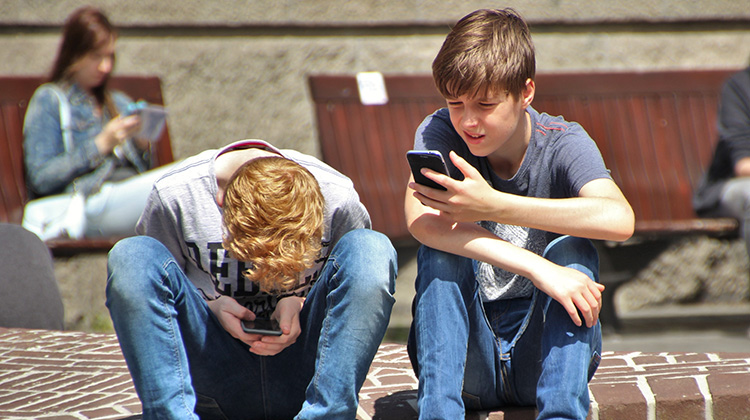Young People in Australia on Edge

It’s not easy being a young person, many are anxious about the future, expecting that they will have less opportunity than their parents and for a surprisingly large number, housing and food security were issues in the last 12 months.
Education is similarly fraught for young Aussies, less than half of respondents felt like they belonged when they were at their educational institution with only 53% indicating that their education prepared them for the future.
The face of education is changing too, only one in five are studying exclusively face-to-face and nearly 60% of young people hold, or have been enrolled in, a micro-credential, micro-degree or micro masters.
Some 90% of young Australians experienced financial difficulties at some point during the last 12 months, half went without eating for a whole day because of lack of money at some point during the same period.
Only 54% believe it is likely that they would achieve financial security in their future but they are being proactive about finances with the majority (85%) having some form of financial investment.
Most young Australians desire full-time, long-term, secure and flexible work, but wider trends suggest this is less attainable and over half (56%) report earning income from gig work in the last year.
All that insecurity is showing up in young people’s mental health which almost one-quarter rate theirs as poor or very poor. Most (85%) report feelings of worry, anxiety or pessimism while almost one-half (45%) often felt as though they were missing out on being young.
Social media is a large part of young people’s lives and looks to be both a means of communication and an outlet. Social media platforms are seen by some as echo chambers and have negative emotional impacts, one in five young Australians agree or strongly agree that writing insulting things online is not bullying. A quarter agree or strongly agree that there are no rules online and that they can do whatever they want.
More than half (56%) of young Australians used their social media profiles to try to influence social change. Most believe that social media can assist under-represented groups to amplify their voice and shine a light on important issues.
The findings come from Monash University’s Centre for Youth Policy and Education Practice’s Understanding Young People in Australia Today report which was based on a comprehensive survey of 505 young people from every corner of the nation and a series of in-depth interviews, echoing the voices of Australia’s 18-24 year olds.
The report was co-authored by Professor Lucas Walsh, Dr Beatriz Gallo Cordoba, Dr Catherine Waite, and Blake Cutler.
“While young Australians are resilient, too many are hurting. They are experiencing poor mental health and nearly a quarter haven’t been able to access the food they need. They’re worried, anxious and pessimistic about the future. After years of disruption, nearly half felt as though they missed out on being young,” says lead author Professor Lucas Walsh.
The report’s co-author, Dr Beatriz Gallo Cordoba, says that young people demand more government intervention across the board during tough times, but particularly when it comes to basic needs such as housing.
“The majority, 61%, of young people identify housing as an area of priority that requires more government support. Young people should be consulted in developing and implementing solutions.”
“Financial pressures are also felt unevenly by different communities. Gender diverse young people, for example, are far more pessimistic about owning a home. These financial challenges require urgent attention,” says co-author, Blake Cutler.
This is the second annual Australian Youth Barometer report released by the Centre for Youth Policy and Education Practice (CYPEP) since its establishment in 2021.
Read the report here: The 2022 Australian Youth Barometer